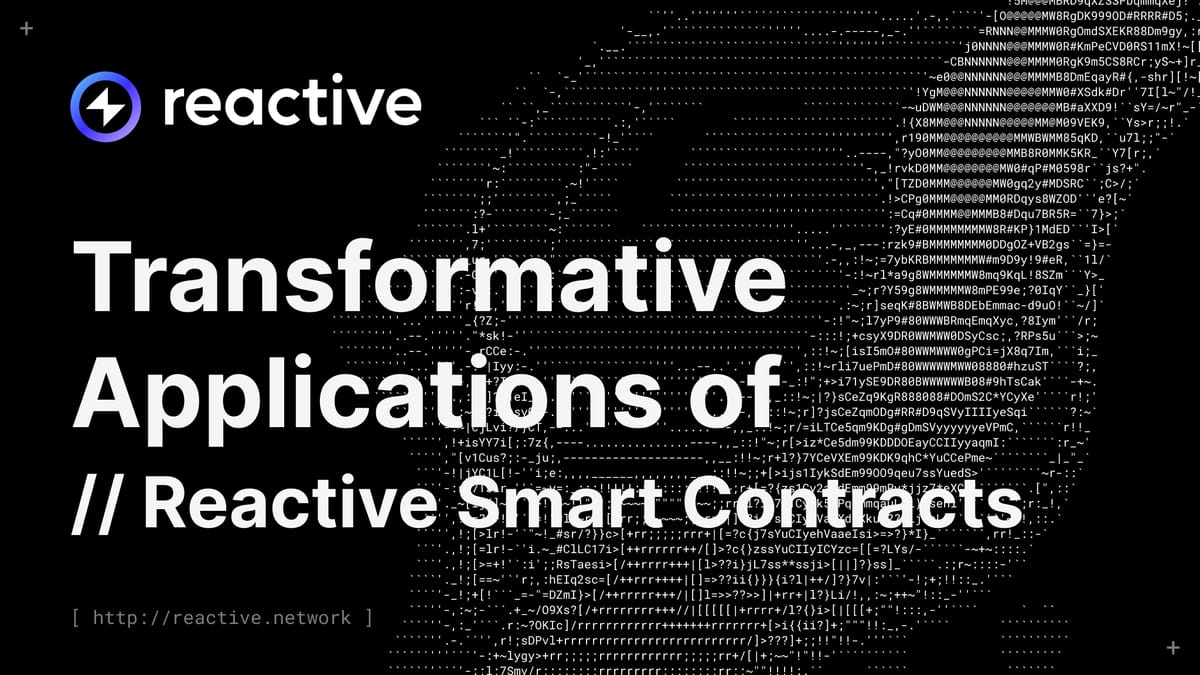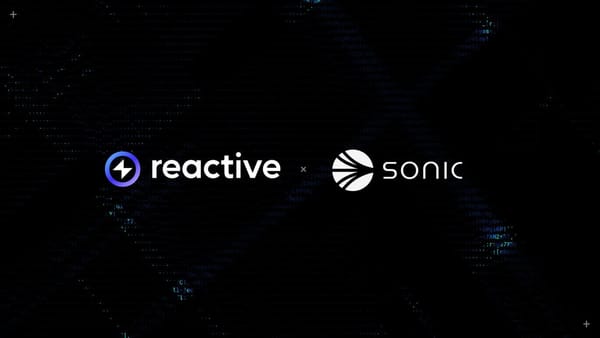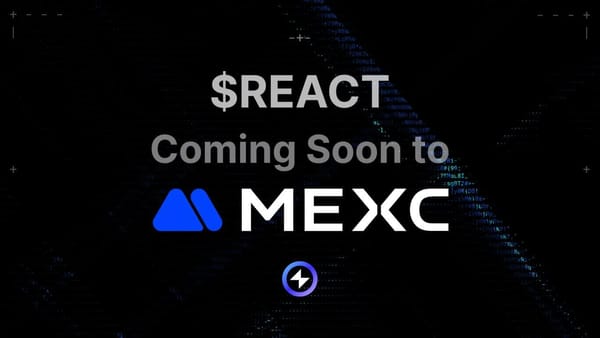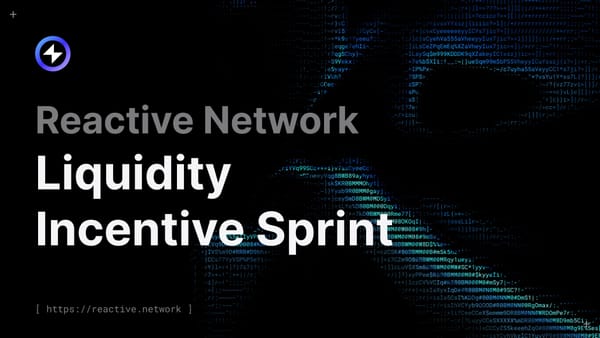Transformative Applications of Reactive Smart Contracts: Part 1
In this series of articles, we explore nine use cases for blockchain interoperability and reactivity.

Reactive Smart Contracts (RSCs) allow responding to events and conditions across multiple chains, enabling real-time communication and automated on-chain actions. This reactivity supports the development of advanced cross-chain applications capable of operating within multiple chains simultaneously, while also unlocking new possibilities within individual chains.
In this series of articles, we explore nine use cases for blockchain interoperability and reactivity. These use cases vary in urgency and feasibility: some are so critical they should have been solved yesterday, others are ready for implementation today, and a few are solutions for tomorrow.
Let’s start with the first three use cases, looking at the current practical implications, limitations, and reactive solutions.
Cross-Chain Oracle
– a system that allows data transfer between oracles on different chains.
Problem
Oracles provide external off-chain data to smart contracts, enabling real-world interactions. In a cross-chain context, dApps can enhance functionality by accessing data from multiple chains. The primary problem comes down to the fact that, without interoperability, oracles are confined to their chains, limiting the efficiency of dApps. If a DeFi platform on Arbitrum wants to access data from an oracle that is only deployed on Ethereum, it is currently not possible to do so.
Another example is a DeFi platform that can use cross-chain oracles to fetch price data from various exchanges across different chains, ensuring accurate pricing information.
Reactive Solution
Reactive Smart Contracts (RSCs) act as intermediaries, trustlessly relaying data across different chains. With RSCs, a cross-chain oracle system can be established where data from an oracle on one blockchain is transferred to an oracle on another. This ensures data consistency and availability across all chains involved. For example, an RSC can listen for specific events about data updates on an Ethereum oracle, fetch the relevant data, and then relay it to the Arbitrum-based dApp. This process happens automatically and in real time, eliminating the need for manual interventions and reducing the risk of errors or data tampering.
Automated Token Buyback and Burn
– contracts that buy and burn tokens based on on-chain metrics like protocol revenue.
Problem
Automated token buyback and burn mechanisms are essential for managing token supply and stabilizing token value. By automatically buying back and burning tokens when certain revenue thresholds are met, these contracts help maintain scarcity, support token price, and boost investor confidence. For instance, a DeFi platform can use these mechanisms to automatically buy and burn tokens when its revenue reaches a predefined level, thereby maintaining an optimal token supply.
Currently, Ethereum smart contracts can’t react to other contracts, so no automation is possible.
Reactive Solution
Reactive Smart Contracts can monitor specific on-chain metrics. After reaching a predefined threshold, an RSC sends a callback to the treasury contract that in turn executes token buyback and burn. Using this approach results in consistent and effective token supply management, reduced operational complexity, and greater stability and value of the token.
Automated One-Step Swap
– the process of token swaps on decentralized exchanges reduced to one user action.
Problem
Currently, users need to sign multiple transactions to complete a token swap on DEXes. First, they must approve the token for trading, and then they must execute the swap. This two-step process increases complexity and the time required to complete a trade. It also makes onboarding much harder, especially for users new to crypto. As a result, a DEX attracts fewer users and less funds than it could.
Reactive Solution
Reactive Smart Contracts (RSCs) can turn a two-transaction process into a single user action. When the user clicks the "Approve & Swap" button in the DEX interface, the wallet first calls the approve() method on the token contract, approving the funds for the Reactive Network address to spend — this forms the first transaction. The RSC then detects this, takes the funds, swaps them, and sends them back, completing the second transaction.
This approach simplifies the token swap process, greatly improving the user experience. By consolidating these steps into one operation, RSCs reduce the complexity of token swaps, thereby lowering the threshold level for newcomers.
Conclusion
Reactive Smart Contracts (RSCs) offer transformative solutions to key issues in blockchain, positively impacting a variety of users and businesses.
For DeFi platforms and developers, cross-chain oracles facilitated by RSCs allow efficient data transfer between different chains, improving the functionality of dApps. Investors and token holders benefit from automated token buyback and burn mechanisms, which maintain token supply and price stability, providing greater investor confidence and reducing operational complexity. Additionally, traders and newcomers experience the simplified one-step token swap process on DEXes, making trading faster and more user-friendly. DEXes, in turn, get more credibility, users, and funds.
Stay tuned for more gripping use cases revealing the potential of Reactive Smart Contracts! For those interested in bringing any of these use cases to life, we welcome you to join our Hackathon and bounty program.
About Reactive Network
The Reactive Network, pioneered by PARSIQ, ushers in a new wave of blockchain innovation through its Reactive Smart Contracts (RSCs). These advanced contracts can autonomously execute based on specific on-chain events, eliminating the need for off-chain computation and heralding a seamless cross-chain ecosystem vital for Web3’s growth.
Central to this breakthrough is the Inversion of Control (IoC) framework, which redefines smart contracts and decentralized applications (DApps) by imbuing them with unparalleled autonomy, efficiency, and interactivity. By marrying RSCs with IoC, Reactive Network is setting the stage for a transformative blockchain era, characterized by enhanced interoperability and the robust, user-friendly foundation Web3 demands.





